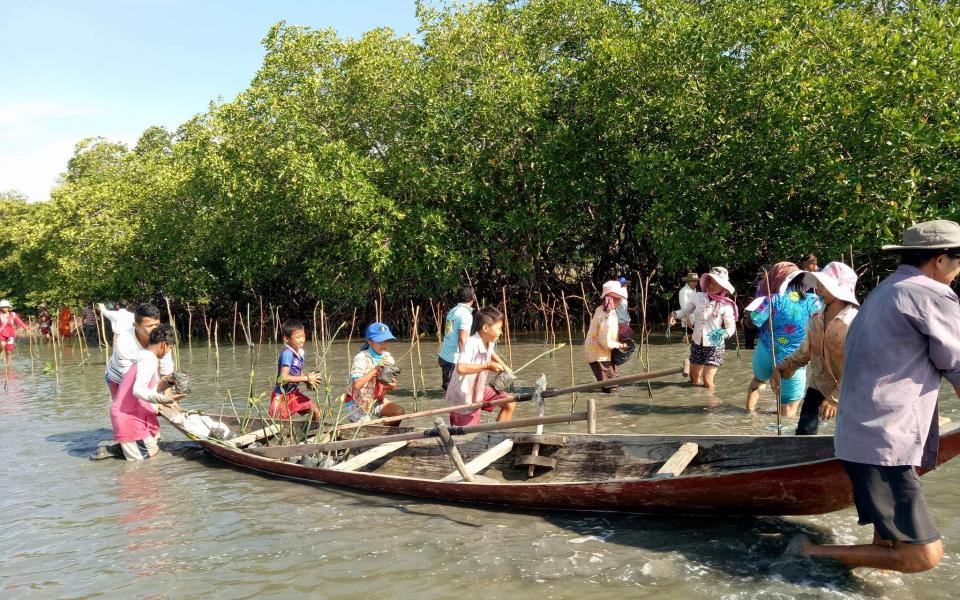
Interfaith Peace Building On Natural Resources Management plant 150 mangrove trees in celebration of the Buddha Day 2018.
Ecological sustainability may seem like a lofty goal, but people and communities around the world are putting in the work to reach it. Katherine Hreib has spent her time at the United Religions Initiative to help facilitate the connections needed to push for more ecological sustainability in communities.
The URI’s Environmental Network serves as a resource and point of connection for environmentally-focused Cooperation Circles, self-organized groups of at least three religions, spiritual expressions, or indigenous traditions that give people the chance to work with fellow community members of different backgrounds. During her time as the Environmental Network Coordinator, a role she assumed in 2016, Katherine Hreib worked to build strong and diverse connections between environmentally-focused Cooperation Circles.
While working as an intern for the United Nations, Katherine heard about an open position at United Religions Initiative that wholly aligned with her interests. She knew it would be a perfect match after meeting with the URI family in San Francisco.
“I’ve always been very attracted to being outside and doing things with my hands,”
From a young age, Katherine knew she was interested in environmental work. “I’ve always been very attracted to being outside and doing things with my hands,” Katherine said, but when she got to college, she realized how she could pursue environmental work on a larger scale. “I was really hungry to study a discipline that could allow me to integrate all of my interests. Studying things that have to do with the environment, or how people interact with non-people, would allow me the chance to get out into the world and really be in communication with things fully.”
Katherine initially got into environmental studies, not because of an interest in climate change or environmental issues, but rather to learn more about what it means to interact with the world.
“For me, faith is really like the act of paying attention and not really taking many aspects of our lives for granted," Katherine said. "As I bring more attention to my own life and really examine every small decision I make, I realize that there are so many ways where I can reduce my impact and look at my own impact, rather than looking at consumption and impact as happening only on a mass scale.”
Katherine learned that a community can follow this same process. Faith communities are consistently capable of environmental improvements because they have already established communities that share similar values. People in these communities tend to easily take on lifestyle practices and challenges in their community because they have a faith-based interpretation of the world that is useful in environmental work.
“For me, faith is really like the act of paying attention"
As URI’s Environmental Network communicator, Katherine’s role was to be in communication with upwards of 200 Cooperation Circles, who are connected over a shared interest in environmental work.
“This topic usually circles around some sort of environmental challenge happening in someone's community or a skill that they are interested in learning, like farming or installing water purification,” Katherine said.
Reflecting on her time as Environmental Network Coordinator, Katherine is happy to know that the connections she made will continue to flourish even in her absence.
“As I step away from URI I am finding a lot of hope and inspiration by the willingness of people to continue the community that we've formed,” Katherine said. “In the past few weeks, people approached me saying, 'I don’t want to see these meetings go away. I want to continue them. Is there any way I can support that process?' For me, that really goes to show that people do enjoy getting together and benefit from that experience, and they are not willing to let that go. In the community, there was enough cohesion and passion to continue meeting, so they are now stepping up to take this project on themselves. That really says it all to me.”
